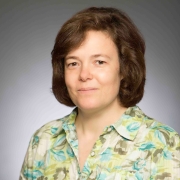Physics and Astronomy Team Begins Digital Sky-Mapping to Survey Dark Energy
Penn astronomers are playing an integral role in the Dark Energy Survey, a global project that will map one-eighth of the sky in unprecedented detail using the world’s most powerful digital camera. The Dark Energy Camera is able to see light from more than 100,000 galaxies up to eight billion light years away in each snapshot.
The scientists’ goal is to find out why the expansion of the universe is speeding up, instead of slowing down due to gravity. Dark energy is the force believed to be causing that acceleration.
Bhuvnesh Jain, Edmund J. and Louise W. Kahn Term Professor in the Natural Sciences in the Department of Physics and Astronomy, leads the Penn contingent. Other members of the team, also in physics and astronomy, include department chair Larry Gladney, Edmund J. and Louise W. Kahn Professor for Faculty Excellence; Gary Bernstein, Reese W. Flower Professor of Astronomy and Astrophysics; and Associate Professor Masao Sako.
The five-year project officially began on August 31, the culmination of 10 years of planning, building, and testing by over 200 scientists and collaborators from 25 institutions in six countries. Every week images of several million distant galaxies will be recorded by the camera and processed by software. The scientists’ observations will enable them to learn about the fundamental nature of matter, energy, space, and time.
The survey will use four methods to probe dark energy: counting galaxy clusters, measuring supernovae, studying the bending of light through a technique known as gravitational lensing, and analyzing patterns in the distribution of galaxies.
The Dark Energy Survey is supported by funding from the U.S. Department of Energy Office of Science; the National Science Foundation; funding agencies in the United Kingdom, Spain, Brazil, Germany and Switzerland; and the participating institutions.
Read the full story here.





